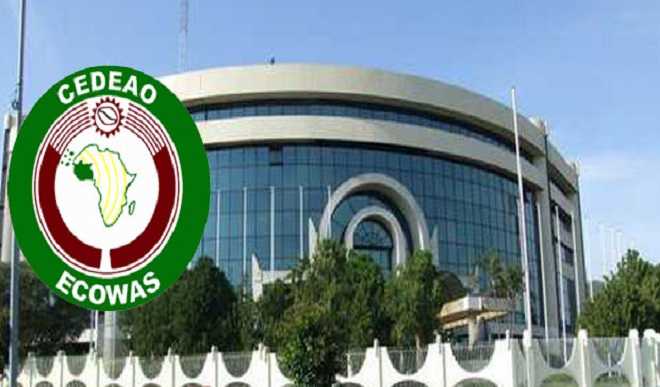By Ifeanyi Nwoko
The Economic Community of West African States (ECOWAS, has issued new guidelines on meetings and programmes within the community to contain spread of COVID-19 (Coronavirus).
This is even as it has directed the cancellation of all meetings with more thanr 50 attendees and directed event organisers for smaller meetings to discourage handshakes and skin contacts.
According to the guidelines issued by the West African Health Organisation (WAHO) and obtained by News Agency of Nigeria (NAN), the spread of the virus into West Africa has made it imperative for the precautionary measures now being taken.
The sub-regional body also stressed that the new guidelines could be reviewed at the shortest notice, adding that if the need arises, all meetings and events may be suspended.
“This severe public health challenge requires close co-operation between ECOWAS Commission (and its Institutions) and ECOWAS Member States in order to protect the health of ECOWAS staff as well as the general public.
“In response to the current Coronavirus (COVID-19) outbreak, this Guidance has been developed by the West African Health Organisation (WAHO) for the ECOWAS Commission and Institutions on appropriate measures to mitigate the spread of Covid-19 during regional meetings and events.
“The situation is changing rapidly and so this Guidance may need to be updated at short notice, for example if it became necessary to suspend all meetings or activities in a Member State or across the region,” it said.
“Non-essential large gatherings of people are strongly discouraged, All meetings with over 50 attendees should be deferred, cancelled or postponed until further notice.
“Meeting organisers are encouraged to employ remote technology if possible (Zoom, Skype, etc.) to help avoid the spread of coronavirus.
“Meeting organisers should let participants know that the meetings might need to be cancelled at the last minute and have in place contingency plans just in case.
“Meetings with participants from any high burden countries should be cancelled irrespective of the number of participants.
“Meeting organisers should know and understand restrictions and other considerations based on the COVID-19 status of the areas that participants are traveling from,” it said.
Event organisers were also directed to take into consideration appropriate measures in their preparation, operational and post event handling to curb further spread of COVID-19.
It said that for smaller events, plans must be made for health and security services, adding that WAHO can be contacted for further guidance.
WAHO also directed that event organisers must liaise with national public health authorities and make contact with the country’s designated public health authority.
It directed event organisers to also undertake a comprehensive risk assessment in partnership with the designated national public health authority
“The risk assessment should be based on the global COVID-19 situation report as provided by WHO and current COVID-19 country situation report published from time to time,” it said.
It directed organisers to notify attendees prior to the event that it could be cancelled if the need arises, adding that event spaces must be big enough to avoid crowding.
“As an extra precaution, participants of all ECOWAS events and meetings should be screened at the entrance of meeting halls with handheld thermometers daily.
“Facemasks are not recommended to prevent spread of the virus in people without symptoms. These should not be provided to participants during ECOWAS events and meetings.
“If facemasks are available at the time of your event, they should only be used by individuals who appear ill and those catering for them.
“Event organisers should consider the need to provide isolation facilities at the event site for participants who develop symptoms and need to wait for a health assessment,” it said.
It urged organisers to maintain contacts with all attendees for at least 14 days after the event had been concluded and report any suspected COVID-19 symptoms.
It urged individuals who develop symptoms during the meeting and their stay in the country to isolate themselves, seek medical attention and inform the appropriate public health authority.
“It is necessary both for clinical reasons and under International Health Regulations to notify the home countries of returning participants of any people who developed COVID-19 infection while attending the event.
“Ensure that any test results reported after the event are notified to the participant and, possibly, to the home country’s public health system,” it said.
